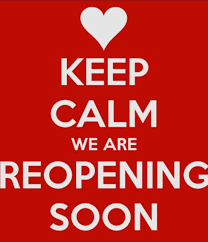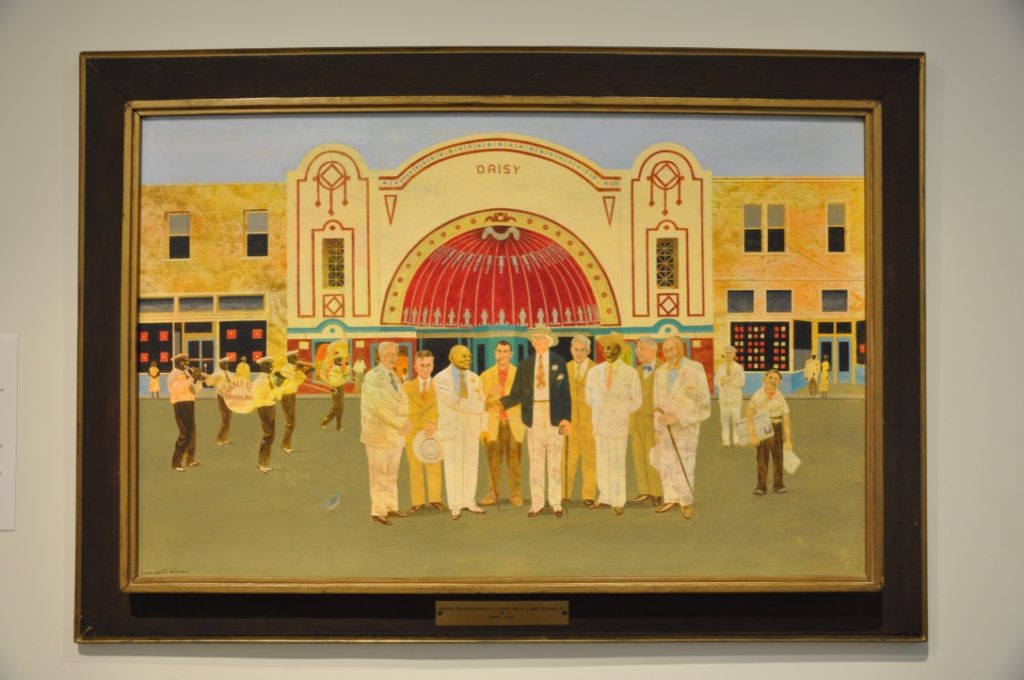The Economy Opens When We Say So
Speaking of the president, it’s hard to even keep pace with today’s opinion which is likely to become tomorrow’s denials. One day, it’s “I’m all powerful” and a day later, it’s “it’s all up to the governors.”
But in the midst of the customary chaos, the truth is he’s essentially irrelevant in “opening up” the economy. For that matter, even governors – and likely mayors – aren’t the ultimate arbiters either of whether business will open again.
We are.
We now live in an economy driven by consumer spending, and only when consumers feel safe will bars, restaurants, and retail begin to return to normal. We’re clearly not there now and it’s unclear when we will be.
Then, too, our power as workers will be a major factor as well.
Few companies – regardless of what politicians say – are going to open if the feedback from their employees is that they don’t yet feel safe or that they believe work exposes them to health risks. Liability issues aside, few companies will really want to force workers back.
No one wants unmotivated or unhappy workers in the new normal, particularly if their lives are complicated by home schooling and child care responsibilities.
There are so many nuances. If children return to school or go to summer camp, there’s the risk of bringing the virus home from other students or campers, perhaps even asymptomatic ones.
Meanwhile, there’s the expected reaction by the gun-toting, freedom-loving extremist right protesters who stretch their victimizations to even comparing themselves to Rosa Parks. They call for the end of stay-at-home policies, and red state governors in particular are encouraged to “open up the economy” by the president whose guidelines blue state governors are following.
Some protesters mix anti-abortion and “I love my gun more than anything” behaviors. At one protest, anti-abortion protesters stood next to signs by gun-toting men that said: “Keep your hands off my body.” The irony escaped them.
It’s curious to watch people who call themselves pro-life march for wide open public policies – without social distancing or masks – that in turn put people’s lives at risk.
Memphis’ Newspaper War
It’s been almost 40 years since Memphis had a newspaper war, and we’re enjoying the one we’re in now.
Back then, The Commercial Appeal and Memphis Press-Scimitar fought it out for journalistic supremacy in the Memphis region. The CA largely won the numbers game because it “owned” the Delta, where it was said that you weren’t really married unless your wedding announcement appeared in the morning paper. Within the city limits, the Press-Scimitar’s circulation often was larger. It had a home delivery edition with an 11 a.m. deadline and an edition with a 2 p.m. deadline that was hawked on street corners as offices closed, sometimes by Tony “Monk” Cassata, who was just as inclined to smack your car with his cane as sell you a newspaper.
No one was quite sure if the Press-Scimitar really hired him, but as a colorful downtown fixture (even featured in Carroll Cloar’s painting, The Historic Encounter Between E. H. Crump and W.C. Handy), he was known for eccentric behavior as he wandered through downtown and midtown wearing layer upon layer of sweaters, even in the heat of the summer.
Those days are but memories by people of a certain age and now seem like the golden age of daily papers. These days, daily print journalism is going the way of the dinosaurs.
So, all of us with memories of those days were excited when Memphis got its second daily about a year and a half ago, Daily Memphian, to go with Old Reliable, The Commercial Appeal. It began dramatically with a raiding party from the newly created online newspaper to hire away most of the Gannett paper’s staff.
Since then, it’s been a battle for a diminishing pool of readers, but from the beginning, DM displayed a tendency to engage in marketing that positioned them as the true Memphians fighting for the soul of journalism against the Gannett monolith. From its “Truth in Place” tagline to references to how it is bringing “unbiased” reporting and “intelligent, in-depth” journalism to Memphis and the implication that the CA’s reporters were somehow less committed to the city because of their employer, the Daily Memphian has been consistent, writing: “It is precisely at times like this that Memphis needs local journalism, run by local residents.”
In the wake of the shift of its staff to a different address, The Commercial Appeal limped ahead with substantial vacancies amid predictions of its collapse. Remarkably, with circulation plummeting more than any Gannett newspaper in the U.S. – 47% from 2017-2019 – it soldiers on with increasing admiration for its determination.
It’s of course not alone. Print newspapers were nationally losing subscribers at a rate of 12% a year, and 80% of Gannett newspapers exceeded that average.
If the CA did not have enough problems making deep cuts that had begun with its previous owners, the rollout of the Gannett ownership was clumsy, misdirected, and tone deaf. The Memphis printing operation was closed, editing was moved out of the city, and the grand plan was to create a Tennessee newspaper network whose mother ship would be in Nashville would be where decisions would be made.
It produced calamitous missteps – from CA awards for Memphis businesses bearing the Nashville skyline, a celebration of the Nashville hockey team’s appearance in the Stanley Cup finals, features highlighting Nashville families, items about new restaurants in Knoxville, and stories that could have easily been localized to Memphis but instead treated Nashville as the center of the universe.
It became a big hill for CA leadership to climb, but methodically, executive editor Mark Russell built a new team of reporters, recalibrated coverage, and the Nashville-centric approach faded. Daily Memphian made the most of the bumpy transition although its number of subscribers still lag the CA, which is a faint image of its glory days when its Sunday circulation exceeded 200,000.
It created a perfect storm for print journalism that provided a huge opening for Daily Memphian, which rather than sell its own strengths regularly resorted to demeaning its competition. Ironically, the combative tone arguably produced sympathy for the CA and more support for its survival.
Meanwhile, last last year, the Daily Memphian, while still criticizing Gannett, hired a Gannett editor to bulk up its journalistic executive strengths.
In the midst of the pandemic, it appears both newspapers have experienced its own unique financial stressors. Both have written often to encourage more subscribers and the Daily Memphian has asked for donations.
While every city is coping with the earthquakes threatening its newspapers, few are in the midst of an evolving story as interesting or relevant as the one here. There is no business model today that does not have sustainability risks but it’s hard not to conclude that the nonprofit model of the Daily Memphian promises more options.
The future of American journalism is likely not as simple as moving newspapers under a nonprofit umbrella, but that structure may indeed allow for the experimentation that will result in wherever American newspaper journalism ends up.
In the meantime, we should enjoy ourselves as a two-daily newspaper community once again, one that produces energetic, vibrant reporting.
Christians Are Not Monolithic
The patriarchal, evangelical nationalist movement never misses a chance to deny women the right to be in charge of her own body, even in the midst of a pandemic.
A number of red state governors, including our own, rushed into the environment to add abortions as nonessential medical procedures.
But that’s not what this is about. It’s about the frustrating habit habit of generalizing with something like this: “Christians were hailing the governor’s order to halt abortions’’ or the “Christians have organized the opposition to the tax increase for schools.”
As a result, it’s as if Christians are a monolithic group whose shared religion automatically means that they all share identical opinions and attitudes.
So, let it be said, even if our opinions are 180 degrees different from evangelicals, it does not mean that we are any less devoted to our religious grounding, although they take us to a markedly different place when it comes to public policies and justice.
National news gives a megaphone to the Christian nationalists like Rev. Jerry Falwell Jr., Rev. Franklin Graham and others who contend that the pandemic is God’s punishment for America’s embrace of same sex marriage or the LGBT community or a robust social net or (fill in the blank).
While many of us don’t see a vengeful God hurling thunderbolts filled with the coronavirus at unsuspecting men, women, and children, if there is such a vengeful God, wouldn’t it make more sense for God to be punishing us for not fulfilling the Biblical mandate to serve the poor, welcome the immigrant, dispense equal justice, act as a refuge for the oppressed, feed the homeless, and do unto others as you would have them do unto you.?
**
Join us at the Smart City Memphis Facebook page for daily articles, reports, and commentaries that are relevant to Memphis









3 excellent points, especially about the non- monolithic nature of the Christian Faith. Many of us have to continually fight and challenge the media’s infatuation with the religious right. You were right on! Keep it up!!